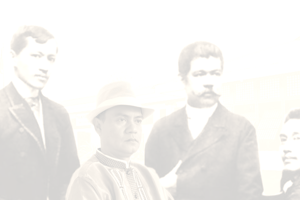Podcast
Questions and Answers
Is it possible for a foreign state to have sovereignty over territory within another state?
Is it possible for a foreign state to have sovereignty over territory within another state?
- No, it is strictly prohibited by international law.
- No, only the home state can assert sovereignty.
- Yes, if internationally recognized treaties allow it. (correct)
- Yes, but only in wartime situations.
Which of the following is a characteristic of a pure centralized state?
Which of the following is a characteristic of a pure centralized state?
- Diverse regional laws are permitted.
- Governance is managed entirely by a central authority. (correct)
- Administrative powers are distributed among various local governments.
- Decisions are made at local levels.
What is true about a decentralized state?
What is true about a decentralized state?
- Regional authorities can govern and create their own laws. (correct)
- Centralized decision-making is favored.
- Local governments have limited powers.
- State decisions are made by a central body.
Which example best represents a decentralized state?
Which example best represents a decentralized state?
How does the size of a state influence its territorial organization?
How does the size of a state influence its territorial organization?
Study Notes
Territorial Sovereignty
- There are no territories where a foreign state is sovereign within another state.
- This is because sovereignty is the ultimate and absolute authority over a territory, and it cannot be shared or delegated.
- If a foreign state were to have sovereignty within another state, it would mean that the other state had lost its own sovereignty over that territory.
Models of Territorial Organization
- Pure Centralized State: All power is concentrated in the central government, with limited or no autonomy for regional units.
- Centralized State with Administrative Decentralization: The central government retains ultimate authority, but some powers are delegated to regional units for administrative purposes. These units may have limited autonomy in managing local affairs but are ultimately accountable to the central government.
- Decentralized State: Power is shared between the central government and regional units, which have significant autonomy over their own affairs.
- Federal State - A special case of a decentralized state, where the constituent units (states, provinces, etc.) have a significant degree of self-governance and may even have their own constitutions.
- Confederal State - A loose association of independent states that delegate limited powers to a central government.
Examples of Centralized and Decentralized States
- Centralized States: China, France, and Japan are often cited as examples of centralized states.
- Decentralized States: The United States, Canada, and Germany are examples of decentralized states with federal systems, which grant significant powers to the constituent states or provinces.
- Size of State - While size may influence the organizational form, it is not a determining factor. Large countries, like China, can be centralized, while smaller countries, like Switzerland, can be highly decentralized. It is more about the historical, political, and cultural factors that shape a state's organization rather than simply size.
Studying That Suits You
Use AI to generate personalized quizzes and flashcards to suit your learning preferences.
Description
Explore the concepts of territorial sovereignty and various models of territorial organization in governance. Understand the implications of centralization and decentralization in state authority. This quiz will test your knowledge on how power is distributed within states.




